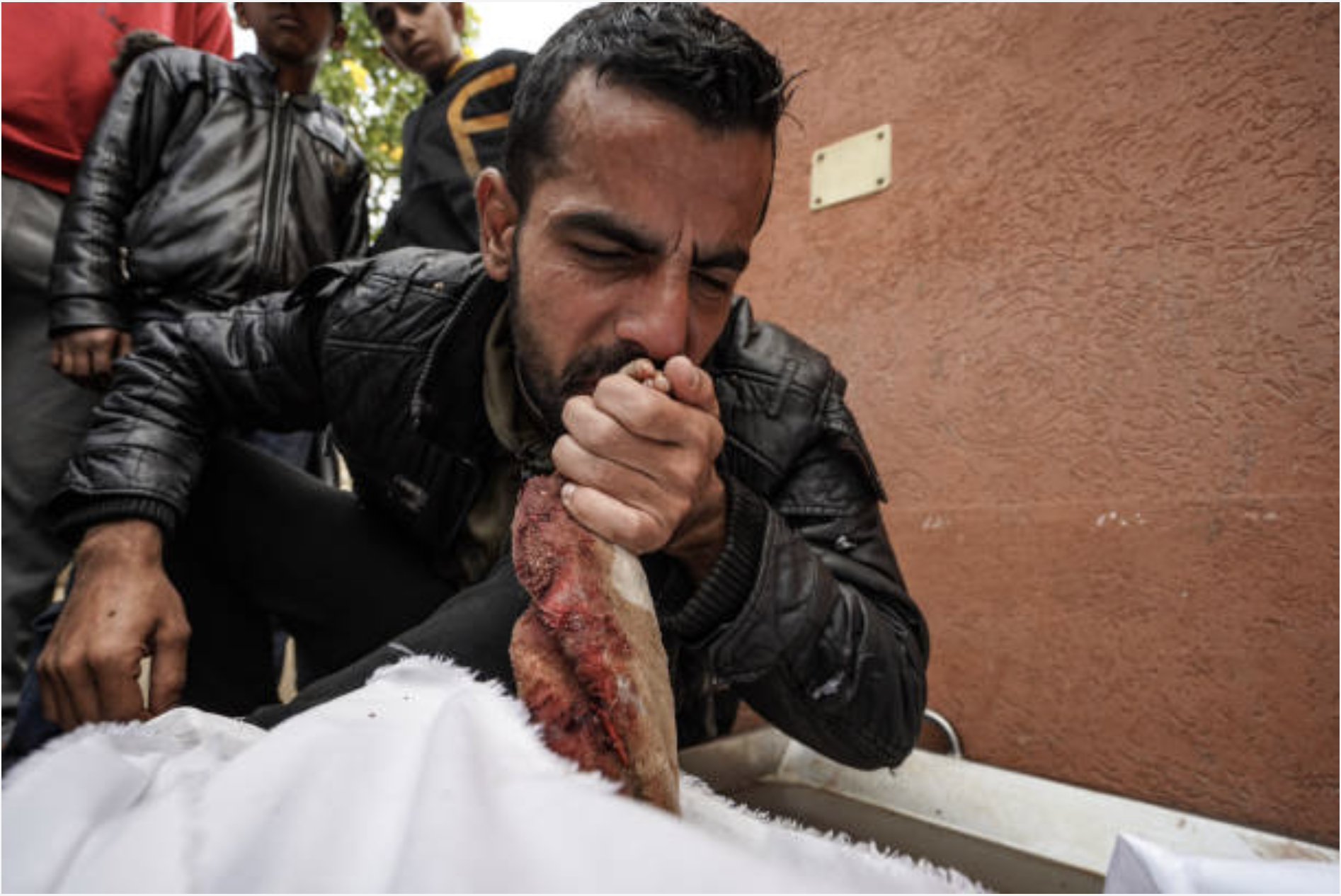Commemorating the Unbearable
KHAN YUNIS, GAZA - DECEMBER 28: Palestinians who lost their loved ones in Israeli attacks mourn as they say goodbye at Nasser Hospital in Khan Yunis, Gaza on December 28, 2023. (Photo by Belal Khaled)
This day is complex, impossible even, for those seeking to commemorate October 7th and the genocide that followed. Can two opposing realities coexist in remembrance? Perhaps they must.
The breaking of the siege was, undeniably, a rupture, a sort of tearing open of the colonial order. For a fleeting moment, the colonized stood on their feet again, confronted empire, and declared that we exist. It allowed us to imagine, to believe for a fleeting moment that the wretched are rising and taking what was stollen from them. October 7th, in that light, was a transformation, a reentry into history. It was the reclaiming of the right to narrate, to act, to live, to desire, to fuck, to make and unmake. Fanon might say it was the moment when the colonized refused to be a patient of history and became, once again, its author.
But this same day also inaugurated the Nakba of all Nakbas. A shattering so total that even the idea of Palestine trembles under its weight. The toll, and really I speak in whole of the psychological, emotional, physical -- cannot yet be spoken of without trembling. We are still within the storm, unable to name its shape. Gaza’s agony defies words and I, not being Gazan, cannot pretend to know its depth. My task, our task, in this process is really to listen, to hear the voices from Gaza in all their pain, contradictions, and clarity. Contradiction is vital here, in that it exposes us to the real and rawness that our hopefulness hashes out from the dreams we had in the rupture of that day.
To commemorate October 7th is not to condemn nor to sanctify rather it is to sit with the unbearable simultaneity of liberation and loss. We must not detach the rupture in the colonial order from the wound it carved into the Palestinian body and psyche. I say this clearly and repeatedly -- We must not detach the rupture in the colonial order from the wound it carved into the Palestinian body and psyche
I wrote on October 9th, 2023, that decolonization will take a piece of your soul and shred it. I did not then realize how literal that would become, how many hearts, how many lives, how many children’s souls would be torn apart in the name of awakening a world that had long grown numb.
So today, commemorate without binaries and without isolating defiance from the horror of its price. Recognize that both are real, both are ours, both will be our path for freedom. Because if we fail to reconcile commemoration with grief, if we do not rid ourselves of these binaries, we risk turning inward and against one another. The movement fractures when mourning is set against resistance, where solidarity becomes suspicion. Reactionaries will take hold, taking both grief and commemoration hostage -- each dismissing the other, each claiming the sole truth, until the meaning of this day is lost to bitterness and exhaustion.
Some will ask: at what cost? Was it worth it for the world to awaken? One child’s death, fifteen thousand, fifty thousand -- who dares calculate such an equation? Only proximity can make that unbearable arithmetic feel real, I mean here the closeness to the child, the mother, the loss is what will change every person's answer to the question: at what cost? Was it worth it for the world to awaken?
There is too much to grieve, too much to rage at, too much that silence alone can hold. But as you stand tonight, tomorrow, next week in vigil, or march, or pray, remember that our struggle is not for the right to mourn beautifully or in community, but to live freely, and in dignity.
October 7th is ugly, and not in the zionist propaganda way of lives lost among settlers, but because for me it is truly ugly to be accustomed to seeing the bodies of our kin, our siblings, strewn across screens in an effort for liberation. That normalization is the deepest wound of all.
